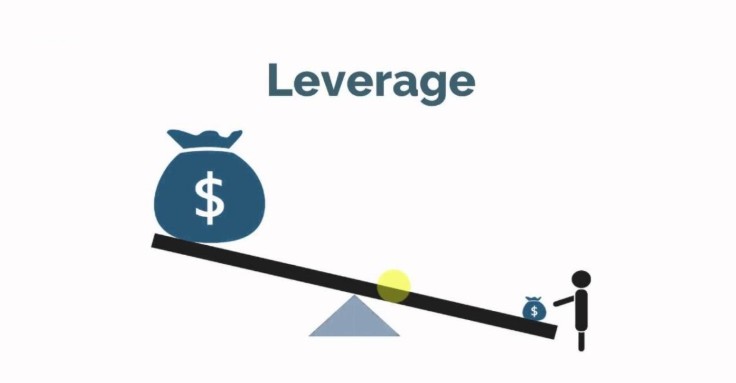In today’s rapidly evolving financial environment, companies are always seeking creative solutions to support their expansion. One such method that has been making waves, especially in the UK, is leveraged finance. Whether you’re running a small business or simply trying to understand how large corporations secure funds for their expansion, leveraged finance is a crucial concept to explore.
In this post, we will take a deep dive into leveraged finance, break down its key components, and address how it could benefit your business. So, let’s start unpacking!
What is Leveraged Finance?
Understanding the Core Concept
Leveraged finance refers to the practice of borrowing capital through debt instruments like loans or bonds. The unique twist is that the debt taken on is “leveraged,” meaning the borrowing is often higher relative to the borrower’s equity.
- Key Takeaway: Leveraged finance is typically used by businesses with higher risk profiles or those looking to take on large-scale projects without parting with too much equity.
Key Features of Leveraged Finance
- High Debt Levels: Unlike traditional loans, leveraged finance involves borrowing more than the company’s equity.
- Debt-to-Equity Ratio: Businesses looking for leveraged finance typically have a high debt-to-equity ratio, often seen in high-yield bonds and leveraged loans.
- Riskier Nature: The higher the debt, the riskier the loan, which also means potentially higher returns for investors.
How Does Leveraged Finance Work?

Breaking Down the Mechanics
The mechanics behind leveraged finance involve borrowing money from a lender with the promise of repayment over time, often with high-interest rates. The structure of the deal is typically more complex compared to traditional loans, with multiple parties involved, such as investment banks, private equity firms, and institutional investors.
Common Types of Leveraged Finance
- Leveraged Loans: Often issued by banks, these are high-interest loans that can be used for a variety of purposes like acquisitions, refinancing, or funding large-scale projects.
- High-Yield Bonds: These bonds have lower credit ratings and provide higher returns to appeal to potential investors. These options are perfect for businesses looking to generate funds but struggling to obtain conventional financing.
- Private Debt: Loans that are not publicly traded but are instead given directly by private lenders or institutional investors. These are usually customized to meet the specific requirements of a business.
| Instrument | Purpose | Risk Level | Typical Borrowers |
|---|---|---|---|
| Leveraged Loans | Funding acquisitions | High | Larger corporations |
| High-Yield Bonds | Fund expansion initiatives | Very High | Riskier small businesses |
| Private Debt | Tailored to specific needs | Moderate to High | Private companies with growth plans |
Why Do Businesses Use Leveraged Finance?
The Strategic Benefits
Leveraged finance is not just about borrowing money—it’s about leveraging debt to maximize financial opportunities. So, why do businesses, especially in the UK, opt for this strategy?
Common Reasons Businesses Turn to Leveraged Finance
- Expansion Goals: Leverage can help businesses grow quickly, especially when they need substantial capital for acquisitions or mergers. By using debt, they can finance large projects without giving up equity ownership.
- Cash Flow Flexibility: Rather than using personal or retained profits, businesses can utilize debt to fund operations without sacrificing ownership or requiring large capital reserves.
- Tax Benefits: Interest payments on leveraged loans may be tax-deductible, which can result in lower overall tax liability, making it an attractive financing option.
- Rising Market Demand: Businesses might need to quickly adjust to increased market demand, and leveraged finance helps fill that gap by offering a quick way to secure the necessary capital.
What Are the Risks of Leveraged Finance?
Should You Be Cautious?
With great opportunity comes great risk. Leveraged finance isn’t without its hazards, especially for smaller businesses or those new to the concept.
Major Risks in Leveraged Finance
- Increased Debt Obligations: Borrowing large sums can lead to significant debt repayments, which could strain a business’s financial health if not managed well.
- Interest Rate Fluctuations: If interest rates rise, businesses may find themselves paying higher costs on their debt, which can add financial pressure.
- Cash Flow Issues: If a business struggles to maintain strong cash flow, it might not be able to meet the interest payments, leading to potential default or bankruptcy risks.
Who Are the Key Players in Leveraged Finance?
Understanding the Stakeholders
In the world of leveraged finance, multiple parties are involved in structuring and executing deals. So, who are the key players?
Important Participants in Leveraged Finance
- Borrowers: Companies that require funding for various purposes, like growth, acquisitions, or refinancing.
- Lenders: Banks, private equity firms, hedge funds, and institutional investors who provide the necessary capital in exchange for interest and potential returns.
- Rating Agencies: Organizations that evaluate the financial reliability of debt security. Their evaluations assist investors in making well-informed choices.
- Underwriters: Investment banks or financial institutions that help structure the deals and raise capital on behalf of the borrower.
How Do Investors Benefit from Leveraged Finance?
Exploring the Investor’s Perspective

Leveraged finance is appealing not only to businesses but also to investors. But why do they find it attractive?
Benefits to Investors
- High Returns: Leveraged finance comes with high interest rates, offering attractive returns for investors who are willing to take on more risk.
- Diversification: It allows investors to diversify their portfolios with non-traditional assets like high-yield bonds or private debt, which can be particularly lucrative in a low-interest-rate environment.
- Capital Appreciation: Investors often see significant capital appreciation in the long term if the business successfully grows and repays the debt.
Leveraged Finance: Is It Right for Your Business?
Evaluating Your Business’s Needs

Not every business is suitable for leveraged finance. Small businesses in the UK, in particular, should carefully evaluate whether leveraging their finances is the best option.
Questions to Ask Before Using Leveraged Finance
- Is Your Business Stable? Does your business have strong and reliable cash flows to meet debt repayments, even during tougher economic times?
- Can You Afford the Debt? Have you considered the long-term impact of taking on large amounts of debt and whether your business can sustain higher debt levels?
- Are You Prepared for Higher Risk? Leveraged finance can offer high returns, but it also carries a significant amount of risk. Are you comfortable with the potential downsides?
Conclusion: Should You Consider Leveraged Finance for Your Business?
The Bottom Line
Leveraged finance can be a powerful tool for funding growth, especially for businesses in the UK looking to expand quickly or fund major projects. However, it is essential to understand both the benefits and the risks involved. Whether you are a small business owner or an investor, leveraging debt needs careful consideration. Always seek professional financial advice to ensure that leveraging finance aligns with your long-term goals.
Remember, using debt as a tool for growth can be highly rewarding, but only if managed responsibly. Make informed decisions and balance the risks to unlock the potential of leveraged finance for your business.
FAQs: Everything You Need to Know About Leveraged Finance
How do leveraged loans differ from high-yield bonds?
Leveraged loans are high-interest loans often used for acquisitions, while high-yield bonds are riskier debt securities that offer higher returns to attract investors.
Can small businesses in the UK use leveraged finance?
Yes, but small businesses need to evaluate their financial health and ability to manage higher debt before opting for leveraged finance.
What do rating agencies do in leveraged finance?
Rating agencies assess the credit risk of debt instruments, helping investors determine the potential risk and return of the financing.

Leave a Reply